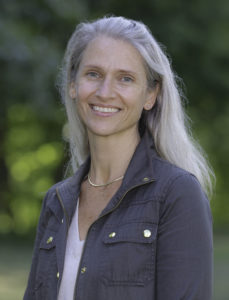Celebrating Black History
Message from the headmaster
Monday marked the first day of Black History Month, a celebration of the contributions, accomplishments, and experiences of African Americans throughout our nation’s four-hundred-year history, from slaves arriving in a Virginia colony in 1619 to Amanda Gorman’s inaugural poem in 2021.
Black History Month has been happening in some form or other since 1926. In that year a group of historians and others now known as the Association for the Study of African American Life and History (ASALH) dedicated the second week of February, in which the birthdays of Abraham Lincoln and Frederick Douglass both fall, to research, discover, and illuminate black history in the United States. That is the origin of our current moment, when we pause and consider the received realities of “history” more carefully, more critically.
For us as teachers and stewards of an equitable learning community, the importance of this month lies both in its invitation to question our assumptions about historical commonplaces, and in its insistence on foregrounding voices that have not been well amplified. To me, it is critical to our mission as a school that we do this.
But we should also recognize that the overarching goal of African American scholars and historians over these last hundred years has not been to widen the scope of our historical attention during a week or month every year. Doing this only begins to remedy the profound absence—and even active negation—of black voices and histories. Our continuing goal should be actually to reinscribe the African American experience and perspective upon our historical and cultural consciousness, so that our American History doesn’t just include Black History, but it is fully implicated in all we teach and learn.
A small but significant example of what this might look like is the curious fact that among the seven poets who have read or recited at Presidential Inaugurations, three of them—over 40%—have been women of color. Maya Angelou read “On the Pulse of Morning” in 1993 for Bill Clinton’s first inaugural; Elizabeth Alexander read “Praise Song for the Day” at Barack Obama’s first inaugural in 2009, and just last month the 22- year-old Amanda Gorman—someone not too much older than our students at St. Johnsbury Academy, performed “The Hill We Climb.”
Each of these poems has suited its moment uncannily—and at Chapel on Monday I read Alexander’s poem both because it traces the path that Amanda Gorman walked to this year’s ceremony and because it feels appropriate to our current situation—in this pandemic and uncertainty we are thankful for daily beauties, and homely hopes. But Gorman’s metaphor of the Hill is so apt and practical—it is Dr. King’s mountaintop; it is the democratic promise of Capitol Hill; it is the collective exertion that actually needs to happen in America for us to get to where we want and need to be. As much as anything, and beyond any month, it is our history.

Dr. Sharon L. Howell
Headmaster

